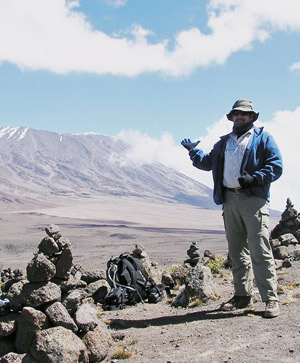
Dr. Robert Kibler
Chair, Division of Humanities, Literature and Language, Professor of English
Office: Old Main 301K
Email: robert.kibler@minotstateu.edu
Phone: 701-858-3876
- Personal Website
Credentials:
BA, MA: University of Maryland at College Park
PhD: University of Minnesota-Twin Cities
Courses Taught:
English 110 & 120 (Composition 1 and 2)
Engl 251, British Lit I
Engl 252 British Lit II
Engl 303 History of the English Lang
Engl 355 Age of Shakespeare
Engl 241 Early World Lit
Eng 242 World Lit
Engl 351 British Novel I
Engl 352 British Novel II
Engl 354 Studies in British Poetry
Engl 435 Major Writers
Eng 515 Professional Issues and Methods
Engl 526 Practical Approaches to Teaching Writing
Engl 536 Enriching Reading I Content Area
Humanities 251, 252, 253, all literature, art, and music of the West
Humanities 254, literature, music, and art of China
Hum 296 and 496 Study Abroad
Special interest in teaching Dante, Milton, and international literatures.
More about Dr. Kibler:
I believe that literature and the humanities are the wellspring of all of that which we consider rich and beautiful and important in the human condition, so seek to inspire students to this same belief. I also know through experience and through study that those with the ability to write well and to analyze the texts of others to good effect become empowered through those actions, so am committed to helping students strengthen their talents in these ways. The pen (or word processor), after all, is mightier than the sword. For more info, see my web page.
Scholarship:
I am interested in the intellectual landscapes of all things Chinese, Roman, and British. My research focuses on the intersections of Latin, Chinese, and Modernist literatures, especially in respect to internationalism, travel, adventure, and ancient rituals and ceremonies. I have written and presented on ancient Chinese philosophy, African tribal life, British Imperial ventures in Africa and Asia, internecine war and violence in the Balkans, and on that wretched beast nationalism in all of its forms. My primary scholarly interest, however, follows the trajectory of my dissertation, which explores the debt owed by Ezra Pound’s Cantos to Naxi culture. Pound spent most of his working life attempting to locate an historical or "earthly paradise," and believed that once he found it he could bring it to life through words. After many failed literary attempts, he settled on the historic locale of Lijiang. Lijiang is a high mountainous region near the Chinese Tibetan border where the Naxi tribespeople continue to live in relative seclusion from the rest of the world. MSU grant funds have allowed me to visit Lijiang, along with MSU student researchers, to work collaboratively with Naxi scholar He Hong and Naxi Dongba Yudeng Situ decoding its ancient pictographic texts. I am currently at work on a book length project based on this research, entitled "A Place Between Worlds: The Naxi People of the Sino-Tibetan Borderlands and Their Conceptual place in Ezra Pound's Last Imagined Paradise." Beyond the Naxi , then, Jen and Ming! Ecce Romani! Oh Britannia!


